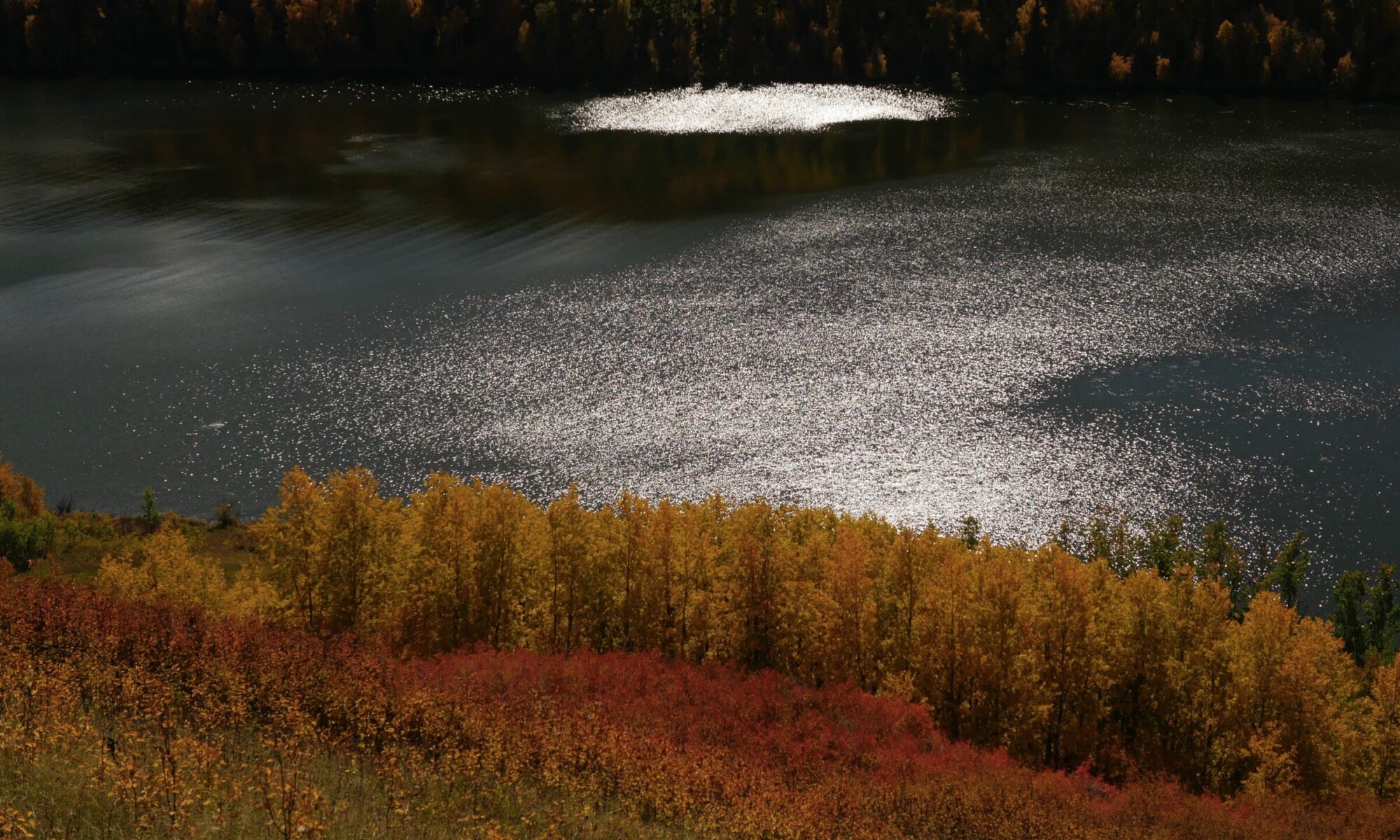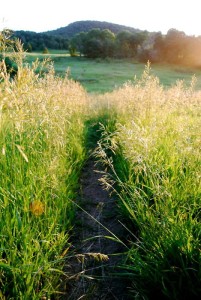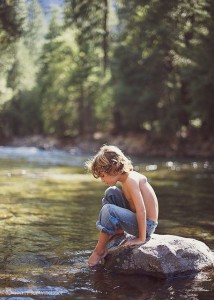![]()
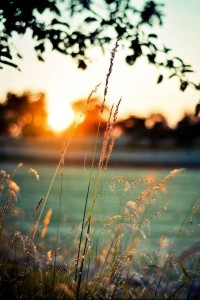
![]()
![]()
On February 27th people of the Alberta Prairie – of Indigenous, Immigrant and Settler story – are invited to gather as one prairie community; the starting place from which we learn how, and are compelled to, live well together with the land.
What if a community could create the better world it wished for, where all people, communities and ecosystems could live well? Each person, animal, vegetable and mineral valued; essential to the whole. What if living vocationally was the way one contributed to the local and global community? What if the collective gifts of a community could meet all its needs? What if a community could transcend injustice while living in it? What if a community revered its diversities in sex, race, orientation, abilities and cultures because its citizens were rooted in their landscapes – the commonplace to which all belong – the story of global indigeneity that makes us one…
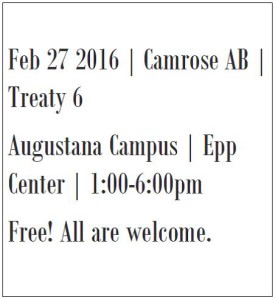 Our educational and economic systems are at odds with sustainability, peace and justice. It is well documented that post-secondary education is implicated in the ecological crises of the world. Instead then, education could be for a reconciled and restorative Earth. Education could be measured by the extent to which its human community and natural community was just and sustainable. What does this mean for Augustana and other western educational institutions that determine our economies, food systems and society? What does this mean for us as food-growers and food-lovers? What if our local communities and landscapes were the context through which and for which we learned, taught and served?
Our educational and economic systems are at odds with sustainability, peace and justice. It is well documented that post-secondary education is implicated in the ecological crises of the world. Instead then, education could be for a reconciled and restorative Earth. Education could be measured by the extent to which its human community and natural community was just and sustainable. What does this mean for Augustana and other western educational institutions that determine our economies, food systems and society? What does this mean for us as food-growers and food-lovers? What if our local communities and landscapes were the context through which and for which we learned, taught and served?
These answers lie in our decision to gather as a broken community committed to hope. It is time. We have reached the edges of our institutions and structures. Injustice and suffering is increasing, millions are dying, the Natural World is disappearing. All communities, cultures, homelands, neighbours, religions, nations, and generations of the world are set to live at the expense of each other.
But, together, a community is capable. The roots of our ecological crises are the disconnections between each other, ourselves and our local landscapes. The diversity and differences which currently divide can instead (like a Natural prairie ecosystem!) be a community’s resilience and vibrancy. Thus the humble act of being, seeing and working with each other and places again is, though beyond modern conceptualization, the transformative act of peace! That is all and everything we are capable of.
Witaskiwin – “living together with the land.”
This participatory community dialogue is premised on the notion that a community is capable of discovering within themselves the courage and ability to engage reality, and change it. Through gathering in diversity and difference, a community learns and teaches each other what is truly required to reconcile. And the bonds of friendship that form between them and their lands is that which compel them to do so. In this dialogue you will be invited to:
- – listen to those with whom you may disagree,
- – see those on society’s margins as most knowledgeable and essential to the pursuit of peace and justice,
- – discern your particular gifts and skills and uniquenesses,
- – risk being compelled to offer them for the community,
- – learn and teach, and…
- – imagine the full possibilities of world peace and what it could look like on the prairie.
By participating you will risk seeing others as yourself, being changed, and having a world of fun! Hear about the life work of our community members (from deans to tweens, farmers and social workers!) Hear the stories of communities around the world that have transformed their realities, and practice the pedagogies they propose.
The hopes we share for just societies and healthy environments, meaningful work and education, reconciliation and restorative cultures resides in a choice: to live and work in relationship as a prairie community, or not. What if by beginning together, the prairie community could live in the way of a world that is, indeed, for all relations and generations...
![]()
Who? You! This Convergence is cross-cultural, cross-class, inter-faith and multigenerational!:
- – Agrarian and conventional farmers!
- – First Nations, Metis, settlers, immigrants and newcomers.
- – Children, youth, adults and elders.
- – Business, industry, government, social services workers, un-employed and retired.
- – Religious, spiritual, atheist and agnostic.
- – Students, academics and citizenry.
- – People of minority communities and marginalized circumstances.
- – All sexual orientations and gender identities.
- – Cynics and idealists.
All are welcome. All are needed. Invite your friends and family! (Invitation PDF)
“Enduring change does not occur through mass numbers of people, but through a quality of relationship between unlikely people.” – John Paul Lederach
“If you have come to help me, you are wasting your time. If you have come because your liberation is bound up with mine, then let us work together.” —Lilla Watson, Australian Aboriginal activist
“Our crises began the instant humans believed they were not enough.” – Anonymous
For more information contact carmelle@ualberta.ca | 780.982.9676 | The Chester Ronning Center for the Study of Religion & Public Life
Keep up to date and start getting excited like us! – visit the Prairie Peace Convergence event on Facebook!
